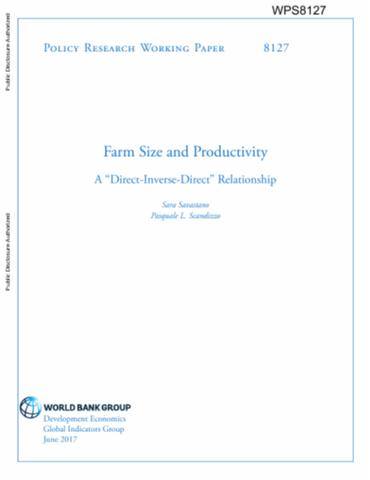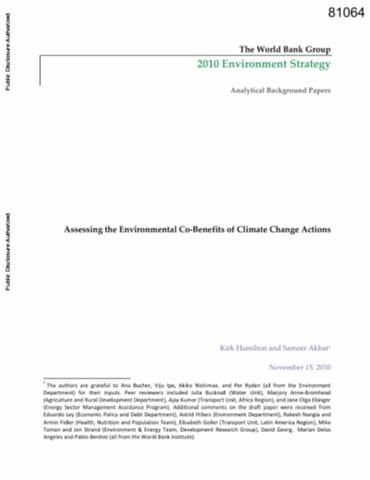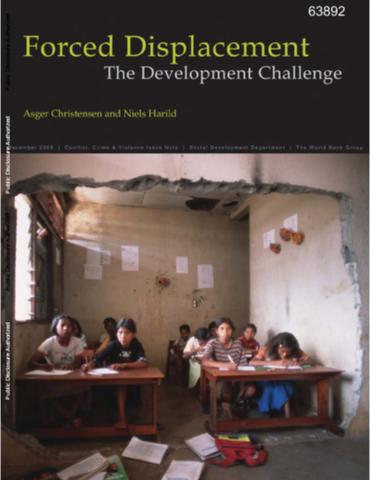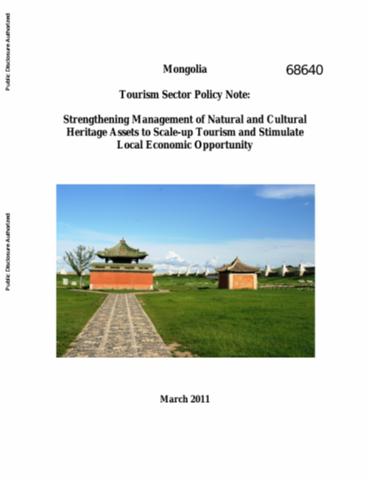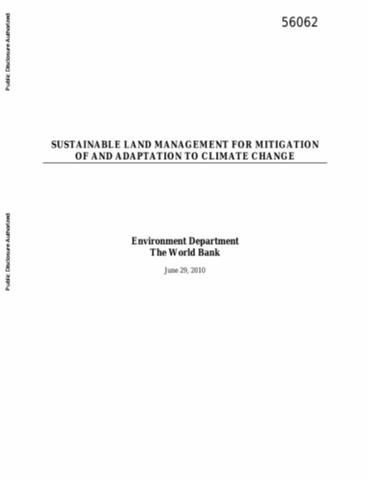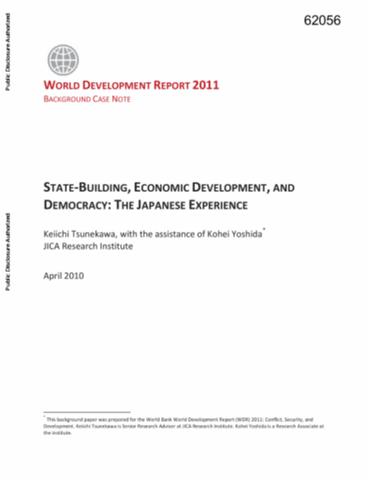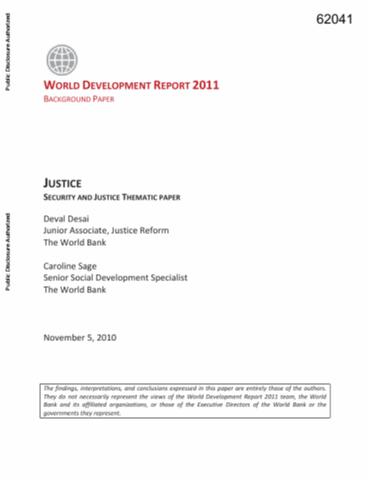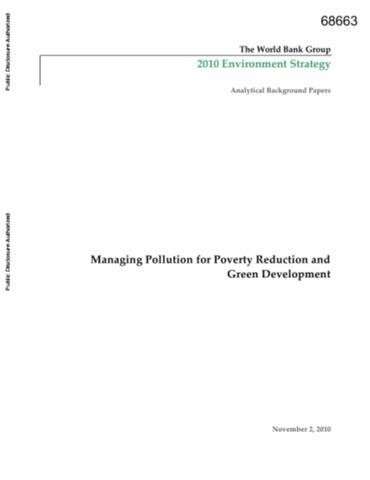
Topics and Regions
Details
Location
Contributions
Displaying 161 - 170 of 630Farm Size and Productivity
This paper proposes a new interpretation of the farm size-productivity relationship. Using two rounds of the Ethiopian Rural Household Survey, and drawing on earlier work on five countries in Sub-Saharan Africa, the paper shows that the relationship between farm size and productivity is neither monotonic nor univocal. Most previous studies that tested the inverse farm size-productivity relationship used ordinary least squares estimation, therefore reporting parameter estimates at the conditional mean of productivity.
Managing Forest Ecosystem Services for Hydropower Production
In many countries, hydropower development is rapidly becoming a focus of green growth policies. This represents a significant opportunity for ecosystem services-based land management that integrates environmental and development goals to benefit the hydropower sector and support economic growth. In this study, we present an approach for targeting ecosystem-provision investment in hydropower catchments coupled with hydrologic modeling to quantify the benefits of soil and water conservation activities.
Assessing the Environmental Co-Benefits of Climate Change Actions
This internal background paper has been prepared to help inform the 2010 environment strategy with respect to a proposed way forward on use of country systems. The World Bank Group environment strategy is built on three pillars: leveraging natural resources for growth and poverty reduction; managing the environmental risks to growth and development; and transforming growth paths. As part of its exploration of these three pillars, the strategy considers the question of environmental co-benefits of climate change actions.
Forced Displacement
This note discusses the development dimensions of forced displacement, and the potential role of the World Bank to address these dimensions and contribute to durable solutions for group's who have returned from or are in displacement situations. For the purposes of this note, forced displacement refers to the situation of persons who are forced to leave or flee their homes due to conflict, violence, and human rights violations.
Mongolia Tourism Sector Policy Note
This report, Strengthening Management of Natural and Cultural Heritage Assets to Scale-up Tourism and Stimulate Local Economic Opportunity was prepared in March 2011.
Logistics Competencies, Skills, and Training
Despite the spread of automation and new supply chain management paradigms, logistics remains dependent on a rather specific set of skills and competencies, whether for managerial, administrative, or blue-collar jobs, such as trucking or warehousing. This dependence implies that the logistical performance of businesses, industries, and nation states is strongly influenced by the quantity and quality of the workforce.
Sustainable Land Management for Mitigation of and Adaptation to Climate Change
The climate change (CC) caused by increase in atmospheric concentration of CO2 and other Greenhouse Gases (GHGs), can be addressed through adaptation and mitigation strategies. Adaptation consists of strategies which minimize vulnerability to CC. The objective is to increase resilience of the ecosystems and communities through adoption of specific sustainable land management (SLM) techniques that have adaptive benefits. On the other hand, the goal of mitigation strategies is to enhance soil and vegetation (land) sinks for absorbing atmospheric CO2 and to minimize net emissions.
State-Building, Economic Development, and Democracy
The remolding of the state from an autocratic to a democratic one in postwar Japan is sometimes regarded as a successful case of external intervention for state-building. When Americans landed in Japan two weeks after Japan's acceptance of unconditional surrender, they expected to meet a fanatic and intransigent people. Instead they were surprised by the orderly and peaceful behavior of Japanese soldiers and citizens (Tamaki 2005, 13-20).
Justice
There is broad recognition, across the political spectrum and in both 'northern' and 'southern' countries, that justice reform, and more generally the promotion of the 'rule of law', are central to development policy, particularly in conflict-affected, fragile and violent contexts. More recently an increased focus on global security and the interaction between security and development as put a renewed emphasis on such efforts.
Managing Pollution for Poverty Reduction and Green Development
The World Bank Group (WBG) has been active in public and private sector pollution management for the past several decades. The Bank has mainstreamed environmental health concerns into its rural and urban services through projects that improved the management of solid and hazardous waste and wastewater, and controlled pollution related to a large variety of sectors including transport, industry, energy, and mining, with each decade having its flagship issues and projects.

